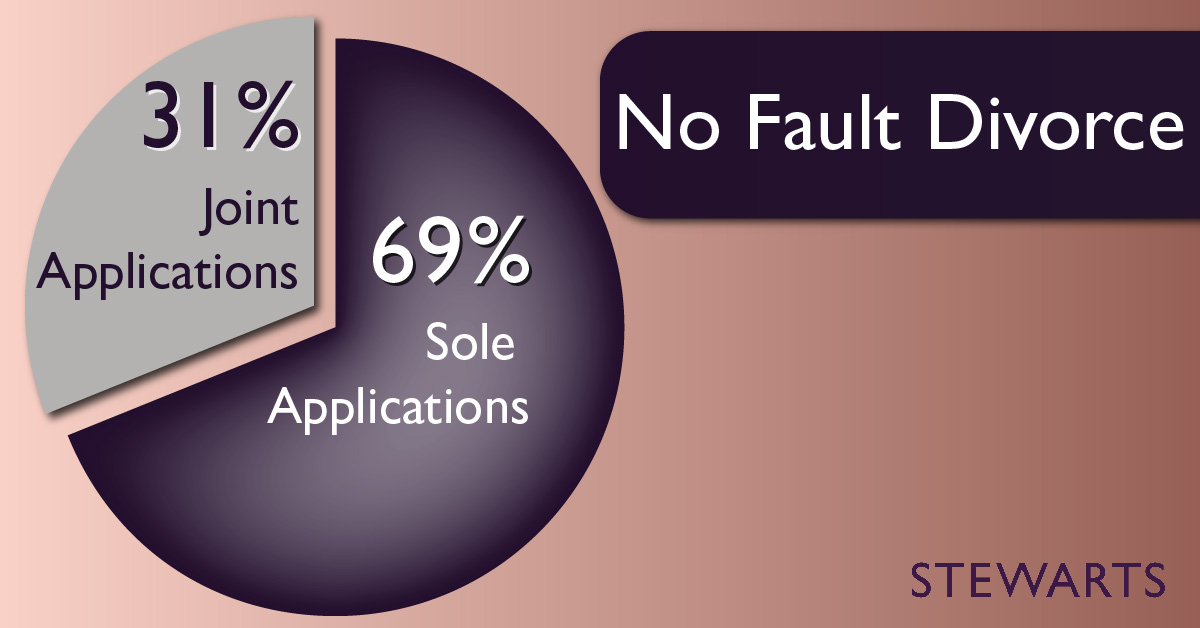Writing for the Wealth in Women’s Hands report published by JM Finn, Divorce and Family partner Voirrey Ward explained the salient points for women to be aware of in divorce law as it stands in England and Wales.
The latest divorce rates in England remain high, at about 42%. This indicates a significant number of marriages unfortunately end in divorce. Divorce can be a challenging and emotional process. It can be difficult and sometimes overwhelming to cope with and have important financial implications.
It is, therefore, vital for someone facing divorce to ensure they put in place an appropriate team of professionals to support them through the process and do what they can to prepare. The importance of doing so is often greater for women, particularly if they have played little or no role in managing their financial affairs during the marriage. Many may find themselves navigating the legal and financial landscape for the first time.
The laws and processes for divorce in England and Wales are constantly evolving, reflecting shifts in social attitudes and emerging trends.
No-fault divorce
An example of this is the introduction of ‘no-fault divorce’ in 2022, which put an end to couples being forced to find blame in one party for the marriage breakdown. No-fault divorce has paved the way for a more constructive approach to relationship breakdown, including a new ability of parties to make a joint application. The new law still requires an ‘irretrievable breakdown of the marriage,’ but a statement to that effect is now conclusive; it cannot be contested and need not be proved by reference to any facts.
Financial arrangements
The resolution of finances on divorce can be complex and contentious. It is important to receive expert advice in relation to the strategy and conduct of dealing with finances, whether through the court or one of the effective alternatives, such as negotiation, arbitration, mediation or collaborative law.
Financial provision on divorce usually takes one of two forms: (1) capital provision (including for housing) together with ongoing maintenance or (2) what is known as a ‘clean break.’ This is where one capital award is made, ending the financial relationship between the couple. Where there are children, any settlement will include financial support for the children.
The court has wide powers to make these financial awards through an array of mechanisms, including transfers of property, payments of cash sums, splitting of pensions, variations of trusts, etc. This is a discretionary area of the law, and there are no fixed percentages or solutions.
The division of financial assets
The appropriate division of assets is based on criteria laid down by the Matrimonial Causes Act 1973. This requires the court to consider certain factors such as the length of the marriage, the age and health of the parties, the standard of living enjoyed during the marriage, income, earning capacity, property and financial resources, financial needs (determined by reference to the standard of living) and contributions made to the family.
There is no discrimination between a breadwinner and a homemaker when assessing contributions. The starting point is an equal division of the matrimonial assets, ie the assets accrued during the marriage. Non-matrimonial assets can include those acquired before or after the marriage and inheritances, which, in certain circumstances, may be excluded from the division. Non-matrimonial assets can become matrimonial during the marriage, for example, if used to purchase the matrimonial home, they become mingled with matrimonial assets or simply because of the passage of time after a long marriage.
The common starting point is a 50:50 division of the matrimonial assets and the exclusion of non-matrimonial assets, but this is not always the case. Some exceptions include:
- If your 50% share of the matrimonial assets does not meet your needs, there may be an invasion of non-matrimonial assets to top up your award, an unequal division of the matrimonial assets and/ or ongoing maintenance.
- If the parties entered into a pre- or post-nuptial agreement that fairly determines a division of assets that is not 50:50.
- Where one party claims to have made a “special contribution”, such that they should receive a share greater than 50%. This refers to an ‘exceptional’ ability to make money unmatched by the other spouse’s input.
This last argument rarely succeeds. One of the reasons is that it has the potential to be discriminatory. In the case of XW v XH in 2019, a successful businessman failed in his claim that he made a more significant contribution to the marriage than his wife. The Court of Appeal found “the wife’s enormous contribution to the welfare and happiness of the family, as the homemaker and principal carer of the child, both during and after the marriage, has been and will be invaluable.”
In cases where there is substantial wealth, there is a high likelihood that the financially weaker party, often female, will receive a significant proportion of that wealth on divorce in England and Wales. How that award is received will depend on the makeup of the assets. This could for example be through a cash lump sum, transfer of investments/ other assets or sharing in future investment returns.
That party must be able to manage such cash award and/or investments to meet their needs, such as housing and ongoing income. This ordinarily requires appointing appropriate financial advisers and managers.
Preparing for divorce
It is not always possible to prepare for a divorce, but things to consider include:
- Most importantly, putting in place a specialist team of advisers to support you through the process, covering legal and financial advice and emotional support, and starting to take advice at an early stage.
- Where possible, ensuring you have access to finances to meet the cost of obtaining legal and other advice and support.
- Endeavouring to understand your and your spouse’s finances (without breaching your spouse’s confidentiality).
- The extent to which there is any ability to impact the matrimonial nature of assets, given non-matrimonial assets can become matrimonial during the marriage, thus influencing what is likely to be shared on divorce. Not rushing into a decision to move out of a property, as this may not be in your best interests.
You can find further information regarding our expertise, experience and team on our Divorce and Family pages.
If you require assistance from our team, please contact us or alternatively request a call back from one of our lawyers by submitting this form.
Subscribe – In order to receive our news straight to your inbox, subscribe here. Our newsletters are sent no more than once a month.






